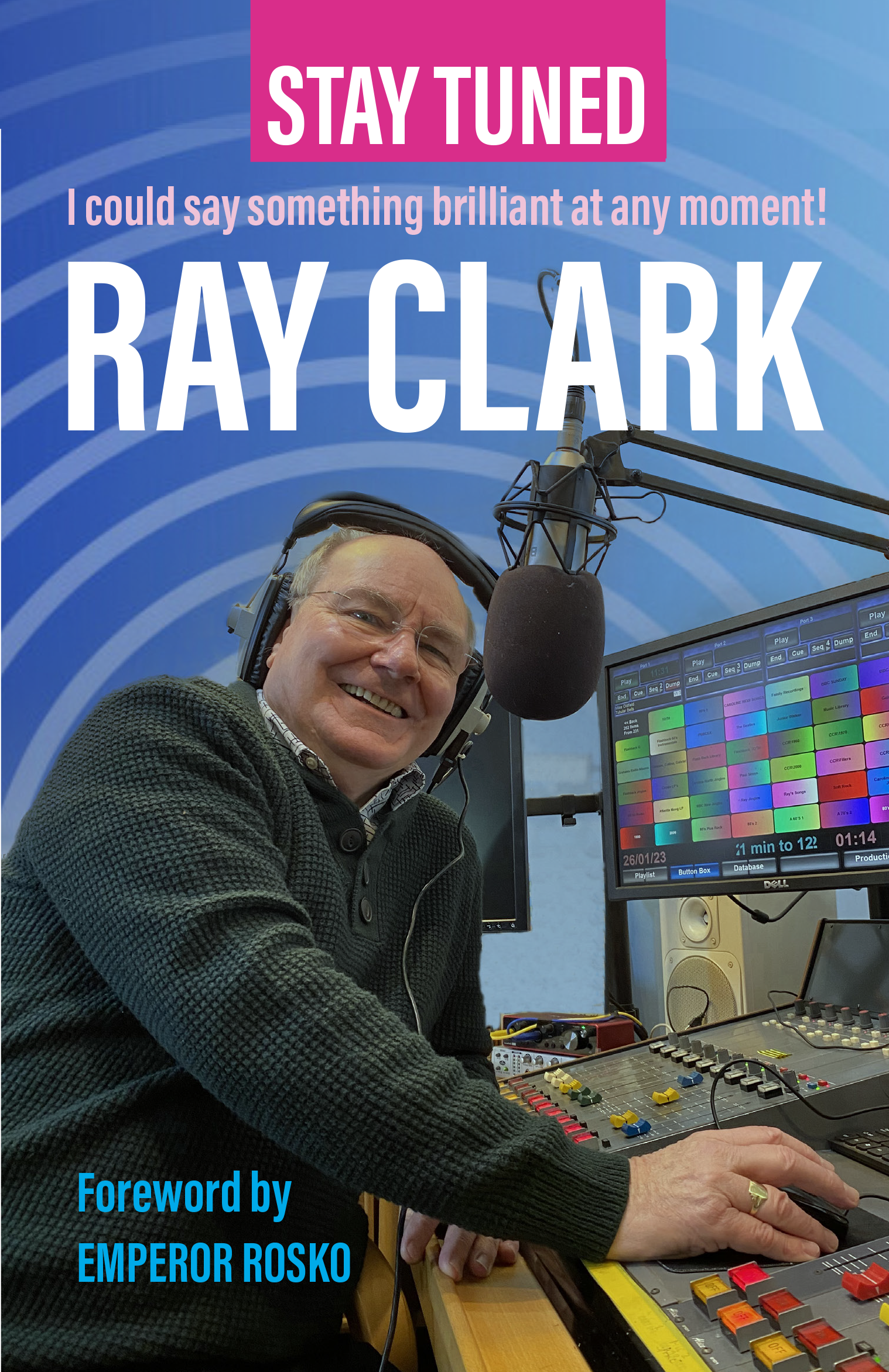|
Ray Clark grew up in Burnham-on-Crouch in Essex, a good place to hear the numerous offshore stations clustered round the south-east corner of England. A radio fan and follower of the pop charts from a young age, Ray
heard Radio Caroline from its very first day on air in 1964 - and was smitten. He wanted to be a DJ.
As for so many of us, the towing away of the two Caroline ships in 1968 came as a terrible blow. Then, in 1970, Radio Northsea International arrived which meant young Ray was revising for his O Levels to the sound of RNI's signal
being jammed by the British government. As he says himself “perhaps that was the reason that I failed seven of the eight exams that I took.” Before leaving school all the departing pupils were summoned to the headmaster's
office to discuss their future employment. Asked what career plans he might have, Ray replied “I'd like to be on the radio”. Maybe it was his strong rural Essex accent, maybe the fact that there were very few radio outlets
at the time but this ambition was not well received. The teacher laughed out loud and suggested that Ray should set his sights on something more realistic, like a job in a bank.
With his one O level, in Economic and Public Affairs, Ray began looking for work and did find a position at the BBC. Unfortunately it was not with Radio One. He was an office clerk in the programme accounts department. It might not
have been exactly what he wanted but it did offer one perk - the chance to apply for tickets to be in the audience for BBC programmes. One of the shows Ray attended was an edition of Radio 1 Club from the Paris Theatre in Lower
Regent Street, hosted by former Radio Caroline star Emperor Rosko. He comments: “Twenty years later I would be offering Rosko a job on my radio station.” The Emperor also writes the foreword
to Ray's book.
After a couple of years Ray had had enough of the BBC. It was a long commute from Essex to Broadcasting House each day and a friend had told him of the joys of working as a bus conductor. “It's great fun and all the girls talk to
you.” What more could a young lad ask for? Ray switched to a career on the buses - first as a conductor, then as a driver - but was still a radio fan. When ‘Flashback 67’, the first ever
offshore radio convention, took place at a hotel near Heathrow Airport in August 1977, Ray was there. On the second day of the event, there was a quiz. Twelve radio fans were asked questions by DJ Andy Archer to find out who was the
biggest ‘anorak’. Ray won! His prize was a mini-TV/radio but, more importantly, he had now made contact with the world of offshore radio. He became friends with Bill Rollins who worked for
East Anglian Productions, purveyors of pirate-related memorabilia.
Meanwhile Ray continued driving his bus, doing discos and helping a friend called Mick Williams with his public address business. He also made a number of trips out to the Caroline ship, the mv Mi Amigo (see some of his photos from
1979 here) but sadly he never managed to get on board.
In 1980 the Mi Amigo sank to be replaced, three years later, by the Ross Revenge. Ray went out to visit the new ship on a number of occasions and this time he did get on board. By now he knew some of the DJs and a couple of them
suggested he might like to join the team. He had always dreamed of becoming a broadcaster but a lack of confidence had held him back. In 1987 he decided to give it a go. He made a demo tape which was passed onto the Caroline management
by his friend Bill. Ray got the gig. At the age of 32 he became a pirate DJ. It was thought unwise to use his real name because of the illegality of the operation so chose an alias to use on air. He borrowed the name of his mate from
the PA company. He became Mick Williams.
Ray enjoyed his period on board but the need to pay the mortgage necessitated a return to coach driving. He was due to return for a second stint on Caroline but work commitments got in the way, and then the ship's mast collapsed.
That was the end of his time with Caroline at sea but his programmes had been well-received, and the kind words from some of his colleagues encouraged him to seek work on licensed radio on land.
After a stint at Invicta Radio in Kent, he moved to his home county of Essex for a long and very successful career first with Breeze AM (part of Essex Radio), then with the BBC. He won awards with both.
It is the two chapters of the book which cover Ray's time on Caroline which will probably be of most interest to readers of this website, but your reviewer also enjoyed the revelations of what goes on behind the scenes at ILR and BBC
stations. Ray has an excellent memory for detail, especially for what songs were playing on the radio at particular times in his life, and tells his tale well. His encounters with numerous celebrities are interesting but, for us
anoraks, it is his insight into the world of radio which makes this book such a highly recommended read. And let's hope the schoolmaster who ridiculed his ambition all those years ago is still around to read it too.
|

